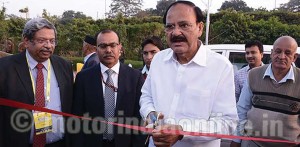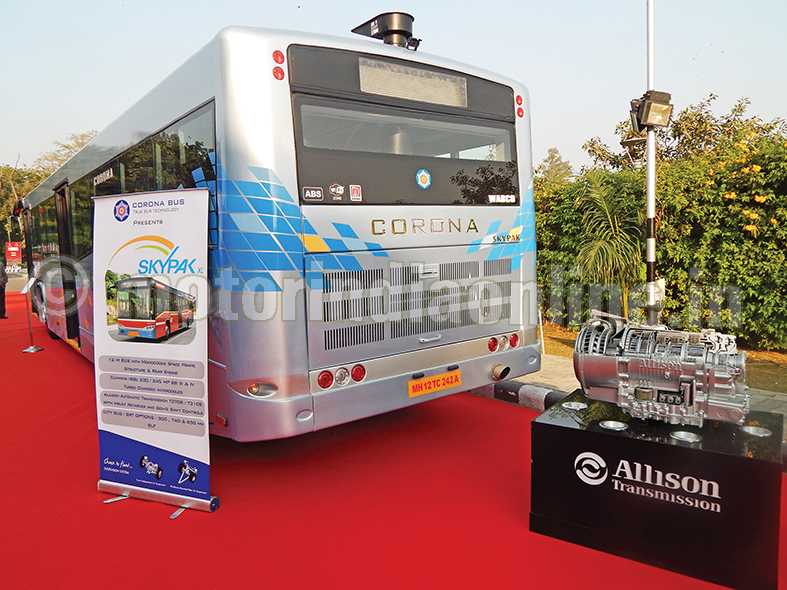Venkaiah Naidu defines smart cities initiative
The Urban Mobility India Conference 2014, which was organised by the Institute of Urban Affairs and the Union Ministry of Urban Development in New Delhi during November 25-28, was attended by multiple decision makers, urban planners, experts, academia, industry delegates, civil society representatives and other stakeholders from 20 States and 23 foreign countries.
Over 70 presentations and 20 research papers were presented at the four-day seminar. All the stakeholders reached a consensus that a world-class efficient public transport is the right solution, and urged early intervention to enable the emerging cities to cope up with the problem so as to avoid the bitter experiences of mega and major cities.
Expressing serious concern over the growing number of private vehicles in major cities, Mr. M. Venkaiah Naidu, Urban Development Minister, called for efficient and reliable multi-modal public transport systems in urban areas to attain the much-desired quick urban mobility. The big increase in the number of private vehicles in urban areas amounts to the rich and the affordable misappropriating the limited urban space at the cost of the poor. This ‘social exclusion’ should be addressed with better transport planning. During 1981-2011, the population of the six major cities of Delhi, Mumbai, Kolkata, Chennai, Bangalore and Hyderabad increased 2.5 times, while the number of private vehicles shot up by about 30 times, increasing from five million to 160 million units, he said.
Referring to the smart cities initiative, Mr. Naidu observed that a smart city is not the one wherein everybody gets to use private vehicles, but one in which even the rich and affordable prefer to travel by public transport. The growing private vehicle population may be evidence of rising incomes and prosperity, but it is a certain indication of total failure of urban transport planning. The urban planning and management is the main challenge of the 21st century, and the Central and State Governments should rise to the occasion by converting this challenge into an opportunity. The Metro transport option is capital intensive, and the success of Delhi Metro may not be feasible to be replicated at other places. However, specific transport systems, including Bus Rapid Transport, Light Rail Transport, etc., are preferable.

The conference recommended formulation of Comprehensive Mobility Plans for cities with over one lakh population focusing on the introduction of public transport systems at an early stage to avoid the kind of problems that bigger cities are facing today. Naya Raipur which had introduced Bus Rapid Transport System (BRTS) at an early stage was cited as a classic example. Noting that BRTS is in use in over 160 cities across the world, the participants expressed the view that it may not have yielded the desired results in some Indian cities, though it is workable and relevant.
The conference also recommended that urban development needs be centred around transport planning through formulation of comprehensive land use and mobility plans. Such plans have been suggested for all cities with over one lakh population when they are not yet locked into land use patterns that promote private motorized transport.
Noting that transport systems are at the core of a smart city, the experts underscored the need for holistic planning with focus on mass transit systems in combination with last-mile connectivity.
Experts from Seoul, the city credited with having one of the best transport systems in the world, shared their experience of developing high quality public transport system combined with demolition of flyovers and elevated highways. They noted that building more roads, flyovers and elevated roads may provide short-term relief but would soon be swamped by growing private motorized transport.
The conference took a serious note of the lack of reliable data to support systematic investment planning and the complexities of collecting and managing such data. It was pointed out that the data required is not available with one agency even at the city level, posing serious challenges. It urged the Government to take up a pilot project to develop a database for one city using smart card-based technologies, which could then be replicated by others, as a pre-condition to the smart cities program.
For the first time, the role of media in promoting awareness about sustainable transport was discussed, and the conference recommended that media should be co-opted at the stage of conceptualization of new initiatives for subsequent wider dissemination.
